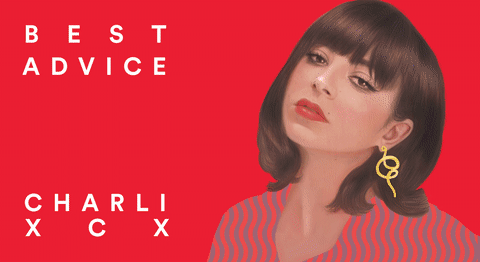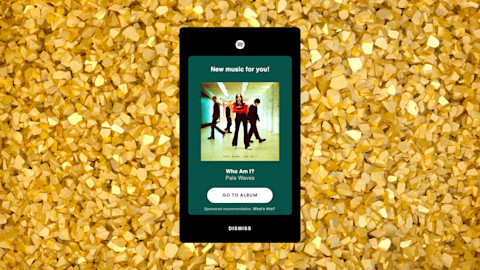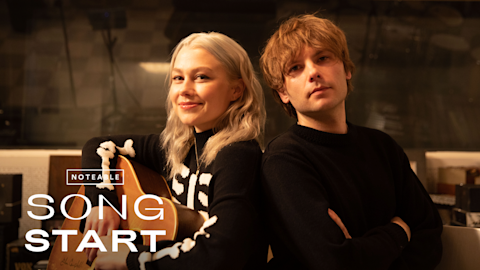We discuss Spotify’s Amplify hub, Stephens’ Women of the World Playlist, and connecting music and culture.
Earlier this month, Spotify launched Amplify, a new year-round hub that aims to highlight important social and political issues and empower underrepresented communities. This month’s theme, “Amplify Women,” is in celebration of Women’s History Month and features over 70 playlists and over 30 podcasts, including the flagship playlist Amplify: Women of the World, which is updated daily.
We recently sat down with Marleisse Stephens, curator of the Amplify hub and co-curator of the Women of the World playlist alongside Athena Koumis and Meg Tarquino, to learn about her approach to socially-conscious curation and her thoughts on the state of women in music.
Spotify for Artists: What is the inspiration behind Amplify and the Women of the World playlist?
Marleisse Stephens: At large, Amplify’s mission is to give a platform to voices and communities that have otherwise been muted, and to push out content that can have a real, tangible impact on those communities. Women’s History Month seemed like the perfect time to launch a program like this, with all the amazing movements that women have started over the last year.
The Women of the World playlist specifically was created for women across the globe to share their message: We’ve featured over 100 women from 100 different countries to date, and are changing the playlist cover every day to represent a new artist from the playlist. This is one of the rarest, most unique opportunities we have to feature such an expansive, diverse suite of women from 100 different cultures on our platform.
How did you put together the curation for the Amplify hub, and what are some of your key criteria for curating feminist-positive, socially-conscious content on Spotify?
Women aren’t one-size-fits-all, and neither are the playlists that we program to support them. As culture evolves, so does Spotify and so do we as editors and curators. It’s super important for us to ensure that the representation of women and other communities is intersectional and uplifting, and that we increase visibility for these communities across everything we do here at Spotify.
For Women’s History Month, we have a playlist for every genre, identity, feeling, movement, and cultural theme — from Women of the World and Black Girl Magic to Latin Divas and Badass Women. Spotify editors across the globe all contributed to the Women of the World playlist, selecting artists from their region whom they thought were really powerful and then introducing us to those artists, many of whom we had never heard before.
We also leverage important cultural moments to tell the stories of the communities involved. The Women’s March is a perfect example: No one could anticipate the impact that it would have in 2017, and now it’s grown into an annual way to commemorate, uplift, and honor women that we engage with across the platform.
Do you work with direct pitches from artists when programming playlists to support cultural moments?, or do you make all the decisions yourself?
Spotify is a user focused, data-driven company, so I’m constantly using existing knowledge and the listening data internally available to me to support programming decisions, especially as it relates to cultural moments. Sometimes those cultural moments haven’t even happened yet — you can’t anticipate virality — so it’s imperative to stay connected with the current culture and keep our finger on the pulse. We also use currently available information from creators to inform our decisions, and engage them in broader ways where there’s an authentic tie in to a cause or advocacy group.
What advice would you tell artists who are looking to align themselves with socially-conscious content on Spotify?
There’s no one specific way you can work with us as an artist; it’s more about bringing something unique to the table that’s both authentic and meaningful for the audience.
For Women’s History Month, we have several artists guest-curating playlists, using their platform and celebrity to champion lesser-known artists in their communities. If an artist has already aligned themselves with an advocacy group or campaign, we can also work with them either through promoting a certain song or through deeper content partnerships.
To help out with the hurricanes that devastated Puerto Rico, we worked with Lin-Manuel Miranda and Beyoncé to produce songs whose proceeds were donated to reconstruction efforts in the region. That’s a great example of how we at Spotify can use our large scale to help artists put their money where their mouth is, in terms of helping in these situations in a genuine way.
Spotify’s CMO Seth Farbman has talked in the past about the importance of "being connected to culture.” How do you respond to culture in your work, and how do you decide which trends and moments to reflect in your playlists?
Music and culture are almost synonymous to me. There’s a rare level of intrinsic intersectionality between the two that can’t be replicated. There are very few moments in life where music doesn’t make sense — whether you’re getting dressed in the morning, graduating, celebrating, grieving, or just relaxing.
As for how those moments get reflected on Spotify, some of those moments are planned, such as holidays and award shows, but many are also unplanned and can range from social movements, to the a death of an icon, to a natural disaster, or even a funny viral moment that has grasped the attention of the masses.
At Spotify, we decide as a team what to program. Our focus is always on providing a relevant, authentic experience for the user. It’s also important for us to use our cultural programming as a vehicle to communicate ways to take action and help when fans and artists need support, such as during a tragedy or natural disaster. We always partner with an advocacy group or local charitable organization to provide real action items so that our users can help out.
From your perspective, how have the role and positioning of women in the music industry changed over time?
As a woman in the music industry, I am so happy to see so many more women, especially women of color, take on leadership roles. I started my career at a woman owned-and-operated tech startup in Atlanta, and began my music career at Atlantic Records, which is led by a female CEO [Julie Greenwald]. Women leaders have been a part of my story from the beginning. Having that representation at the decision-making table is vital. Diversity and inclusiveness is the key to authentically connecting with culture as a brand, as a community, as a person.
This past year has been a really amazing breakthrough moment for women in entertainment, period. I’m happy to be able to witness what seems like a pivot in how we think about women and agency, and an even bigger pivot in the explicit and implicit policies that restrict how and where women are represented. We have a long way to go, but we’re headed in the right direction and holding the door open for the next girl.
One of the things I’m most passionate about is women & minorities having the agency to create their own narrative. At Spotify, I work with a diverse group of some of the most amazingly smart, tenacious, innovative, and hard working professionals who are also women. Whether it be editors, marketers, managers, artists, producers, or product designers, I’m lucky to have that inspiration sitting right next to me everyday. Having such a diverse group of females working together in tech is such a pleasure, but it’s rare in the wider industry and should be more of the norm.
- Cherie Hu
Popular Stories
video
How Julia Wolf Made It




